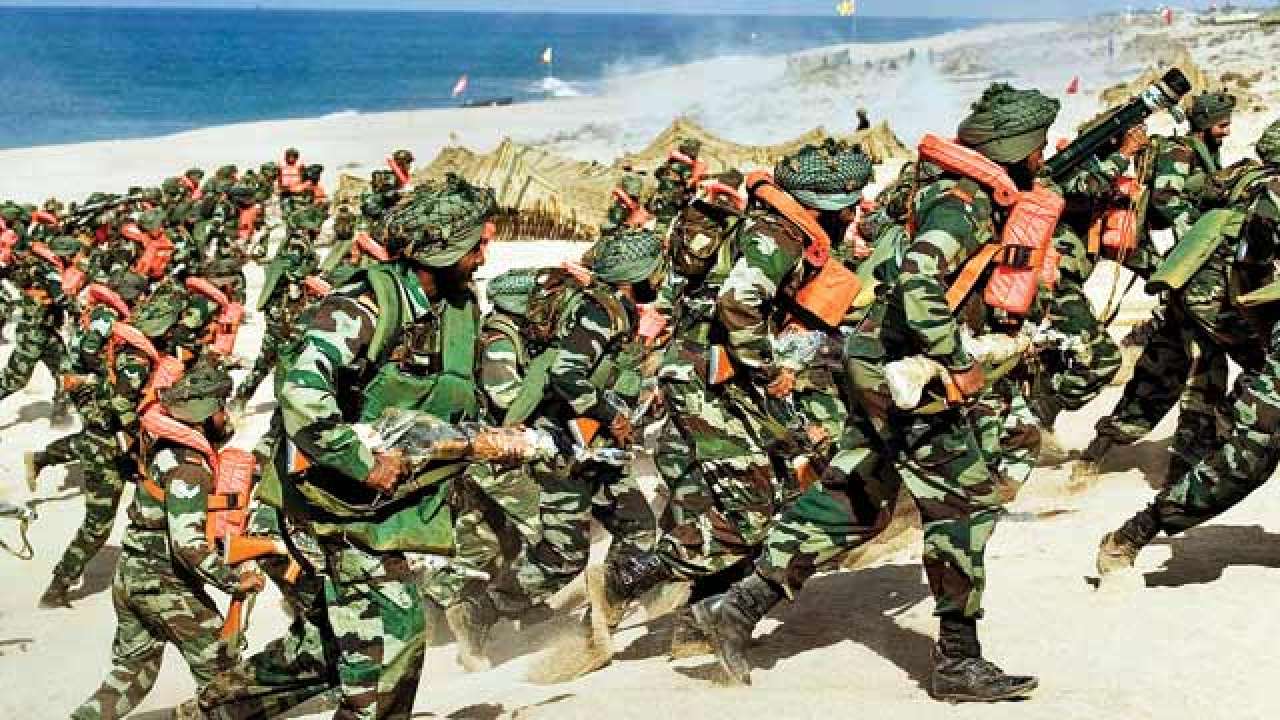
The members of the Armed Forces and paramilitary forces (referred to as ‘armed forces’) are called upon to perform duties which may necessitate killing other people or sacrificing their own lives. They may have to live and serve in hostile areas and always be capable of guarding the frontiers of the country and ensuring internal security. These special factors call for placing limitations on their rights. However, should armed forces personnel not be entitled to certain basic human rights?
The Armed Forces personnel are citizens of India and are entitled to the fundamental rights contained in the Constitution. Some of their rights have been restricted by the Constitution itself to ensure discipline and the proper discharge of duties by them. These rights relate to membership of any trade union, addressing political meetings and taking part in demonstrations for political purposes and communication with the press or publication of any document. While taking into account the special characteristics of service life, the following rights guaranteed by the Constitution must also be enjoyed by members of the Armed Forces.
Right to Life: Members of the Armed Forces are trained to fight a war, kill enemies and destroy property. A soldier knows that he may have to sacrifice his life while fighting for his country. He undergoes rigorous training and is aware of the hazards to his life, but he may get killed because of the recklessness of his fellow soldiers or the lack of proper equipment. A pilot may get injured or killed while flying an obsolete aircraft. A soldier may get killed by another disgruntled or mentally disturbed soldier. He might get killed in an IED explosion if the vehicle provided by the State does not have protection against such devices. A soldier who has been provided with a faulty GPS set may get killed for intruding into enemy territory accidentally. The death of a soldier in these circumstances would amount to human rights violations.
Democratic rights: Members of the Armed Forces are being deprived of certain basic human rights, particularly in the case of the lower ranks in the name of ‘service ethos’. The system of sahayak or batsman still prevails in the Indian Army and some of the paramilitary forces. The sahayak is not a listed trade in the Armed Forces, but usually, young combatants do this task for a few years. The Parliamentary Standing Committee has asked the government to abolish the system of employing jawans as sahayak, a legacy of the British era. However, the Defence Ministry has justified that sahayaks help officers in communications and other tasks during operations. The employment of a combatant in such duties may contribute to increased stress levels and low self-esteem.
Working hours: The Armed Forces do not follow any specific rules on work hours, which are based on the premise of the permanent availability of military personnel. The Ministries of Defence and Home Affairs should take all possible measures to ensure that provisions related to working conditions are implemented in accordance with national law and international obligations. If armed forces personnel are required to work for longer than the legally defined hours, they must be monetarily compensated.
Poor working and living conditions: After 70 years of independence, military establishments still do not provide housing for all ranks. It may take two years or more before a person below the rank of officer is allotted family accommodation in a military station. By that time he has to be ready for the next posting. Security experts say that jawans posted far away from their native places are under tremendous stress due to the lack of contact with their families. A study undertaken by IIM-Ahmedabad has cited continuous posting in difficult areas, long working hours, sleep deprivation, denial of leave, lack of healthcare facilities, delay in promotions and pay parity as causes of stress.
Archaic legal system: The legal system which governs the armed forces contains archaic provisions which were drafted by the colonial masters to serve their purpose. These provisions are harsh and have not been updated keeping in view the progressive development in the Indian penal system and the norms of international human rights. Besides updating archaic legal systems, the jurisdiction of the Armed Forces Tribunal must be extended to the paramilitary and central police forces.
The Armed Forces cannot stay cocooned since the personnel they recruit belong to and interact with the wider society, which has undergone significant change. The government must ensure that the members of the Armed Forces enjoy the basic human rights and fundamental freedoms in the context of their service. A soldier whose human rights are protected by the State is likely to be more disciplined and operationally effective, and also less likely to violate the human rights of others.
The author is a retired Wing Commander. Views expressed are personal.